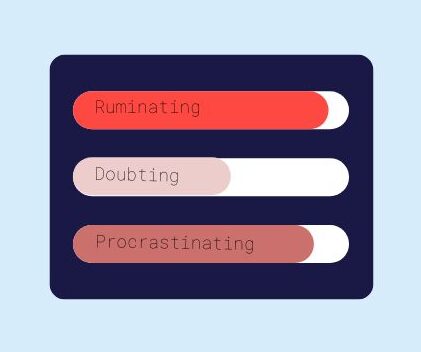This is the fourth post of a series about social anxiety; hopefully you’ll find them helpful. This particular post is about social anxiety and dating.
For those of you struggling with social anxiety, shyness, or introversion, dating can be an especially difficult area. Many with social anxiety find any relationship difficult – it is difficult to meet new people, engage in conversations, or maintain friendships – but there are many other variables to attend to when dating such as flirting with another person, gauging whether a potential partner is a good fit for you, or managing your fears of rejection. You will also want to assess your interactions with a potential partner and distinguish between casual dating versus exclusive dating. All of these variables make of dating a “full time job” or 24/7 activity. In my experience as therapist, I noticed that social anxiety or shyness adds another layer to the dating conundrum, primarily because “dating” could easily become a “perceived threat” for which you “must” be “prepared.”
Quite often, I witness specific “dating traps” related to social anxiety that not only make the process of dating more difficult, but also reduce the opportunity to really get to know another person and lead to more loneliness. Two specific “dating traps” that I’m referring to will be discussed in this post.
Mind-reading thoughts: When we assume we know what the other person thinks without checking with them and we believe these thoughts are absolute truths, we are having mind-reading thoughts.
For instance, when Peter went for coffee with Lauren, after the typical “awkward moment” of starting the conversation, ordering coffee and pastries, and sitting at the table, Peter noticed that occasionally Lauren didn’t give him eye contact. He immediately concluded, “I must be boring, clearly she’s not interested on me.” Peter did like getting to know Lauren because she was silly, spontaneous, and curious about him; however, Peter’s thoughts continued to fly around in his head, such as, “She’s not looking at you all the time, so clearly she doesn’t like you at all; here I am again, putting myself at risk to be hurt. Nothing is going to work.” He believed these thoughts more than the other information he was receiving from her, such as that she enjoyed being with him. As a result, he decided to not contact her again. After sending a definitive e-mail stating he wasn’t interested on her, he received a phone call from her apologizing for her distractions since her mother was in the hospital. Peter was making “assumptions” about what the frequency of Lauren’s eye contact meant. He assumed that it had to do with him and her feelings about him, and quickly made a decision based on those mind-reading thoughts.
Mind-reading thoughts can also been seeing as “assumptions” and therefore people justify their behavior based on these assumptions. The challenge with assumptions in the dating world is that they’re another form of making presumptions about how the other potential partner looks at you.
Over preparing behaviors: Let’s take a look at Robin’s date with Jessica. After exchanging a couple of e-mails in e-harmony, Robin and Jessica agreed on meeting at an Italian restaurant for a low-key dinner on Wednesday night. Robin was thrilled about the prospect of meeting Jessica face-to-face, and since Monday had been continually rehearsing what he would say to her during dinner; he wrote different scripts and imagined Jessica’s potential responses to his comments. Wednesday night arrived and Robin was scrambling to remember what he had rehearsed in the preceding days. He was attempting to recall the right words, right sentences, but panicked when he realized that he didn’t remember in detail Jessica’s profile, and furthermore, he didn’t even take notes on his cell phone about it. So he found himself lost. In his head he was trying to visualize to the best of his ability Jessica’s profile, page by page, making a serious effort to recall some of the details. Meanwhile, Jessica only saw him staring at her, mumbling some questions, and switching topics very quickly in a manner that she couldn’t make sense of.
As you can see in the above descriptions, mind-reading thoughts and over-preparing behaviors driven by the fear of being misjudged (a core fear in social anxiety) make dating more difficult than what it is and really led people to discount social encounters that could evolve into potential romantic relationships.
If you’re engaging in any of these responses, here are the two brief recommendations:
For mind-reading thoughts: If you find yourself having one of these thoughts, make sure you label it for what it is, a mind-reading thought. Then, learn to hold these particular thoughts as “hypotheses” and not absolute truths. If appropriate, check in with your potential date about those thoughts rather than just assume they are absolute truths.
For over-preparing behaviors: Notice when you’re engaging in over-preparing behaviors and classify them as such. Do the best you can to be fully present with your date and learn directly from him/her by asking questions and listening. Try to concentrate less on your mental chatting about how you’re being perceived.


